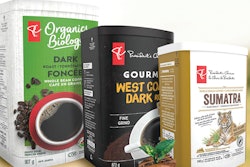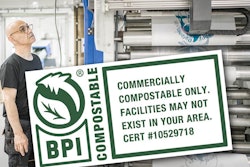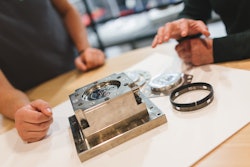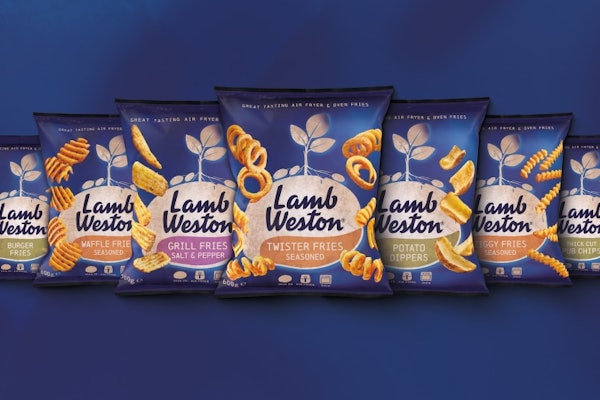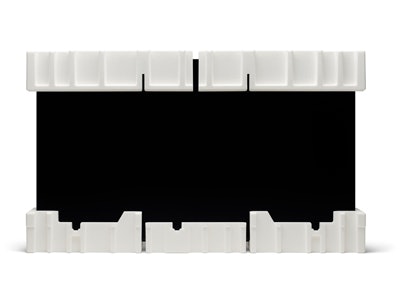
The Innovation Zone is currently tracking a significant number of bio-based packaging innovations, reflecting the packaging industry’s obsession with sustainability. High costs remain a barrier to widespread adoption, underscoring the need for further advancements and economies of scale to make these solutions more accessible.
Learn more about ThePackHub's Innovation Zone here.
 Sony designed its cushioning mold structure to maintain proper performance while using Kaneka's Green Planet material.ThePackHub
Sony designed its cushioning mold structure to maintain proper performance while using Kaneka's Green Planet material.ThePackHub
Sony has announced its achievement as the first company in the electronics industry to eliminate polystyrene foam cushioning material for the Bravia 9, the 85-inch 4K Mini LED TV, in Hong Kong and Taiwan. This aligns with the company’s goal of achieving zero environmental impact by 2050. The polystyrene foam will be replaced by Kaneka Green Planet, a biomass-derived biodegradable biopolymer made by Japan-based chemical manufacturing company Kaneka. Sony states that this material can biodegrade in various environments, decomposing into CO2 and water and claiming to address environmental pollution caused by plastic. Cushioning materials, crucial for maintaining the impact resistance of large and heavy televisions during transportation, are moulded into complex shapes to match product design. Sony designed a mould structure specifically for Green Planet, maintaining impact resistance and stable production. Additionally, the company simplified the cushioning material shape and reduced part numbers using its packaging design expertise and simulation technology.
 Flow Beverage's new packaging is made from over 80% renewable materials.ThePackHub
Flow Beverage's new packaging is made from over 80% renewable materials.ThePackHub
Canada-based Flow Beverage, a premium water company, has introduced its advanced packaging and a new brand platform, which are set to launch across North America in mid-2024. Unveiled at the Expo West event in Anaheim, California, the new packaging, primarily for its Flow Original product and later for its Flavored Water range, is made from over 80% renewable materials and features a sugarcane-based cap, moving away from traditional polymers to bio-based alternatives. This initiative aligns with the company’s commitment to sustainability, highlighted by its B Corp certification and ‘Best for the World’ designation. The visually striking design aims to captivate consumers and streamline the brand’s presence across physical and digital platforms. Alongside the packaging innovation, Flow is launching a brand platform to foster community connections through influencer partnerships and consumer events, reinforcing its leadership in the North American premium water market.
 PulPac claims its Dry Molded Fiber material is an environmentally friendlier alternative to even traditional fiber products.ThePackHub
PulPac claims its Dry Molded Fiber material is an environmentally friendlier alternative to even traditional fiber products.ThePackHub
Swedish coffee chain Da Matteo has partnered with PulPac, a company also based in Sweden, to introduce Dry Molded Fiber technology in their takeaway coffee lids as part of a move towards more sustainable packaging solutions. This innovative technology utilises a less resource-intensive manufacturing process that significantly reduces water and energy usage. The coffee lids, which include barrier ingredients from PulPac’s partners OrganoClick, Solenis, and Sofidel, are made using a biodegradable and home compostable binder, along with specialty tissue, enhancing their performance and environmental benefits. PulPac’s Dry Molded Fiber is presented as a cost-competitive, environmentally friendlier alternative to both plastic and traditional fiber products, aligning with recent EU legislations for takeaway items. Furthermore, PulPac has developed automated machine platforms for producing these sustainable products at scale, with applications extending beyond coffee lids to include mobile phone tray inserts, showcasing the versatility and potential of Dry Molded Fiber in reducing the environmental impact of various packaging needs.
Learn more about ThePackHub's Innovation Zone here.


